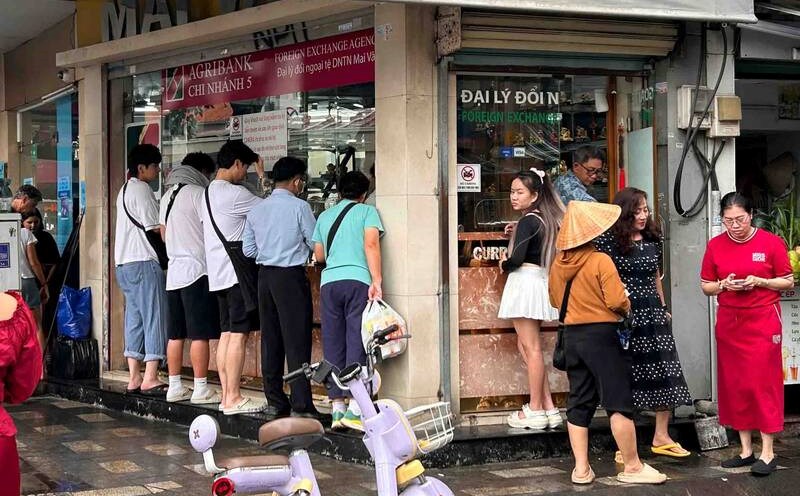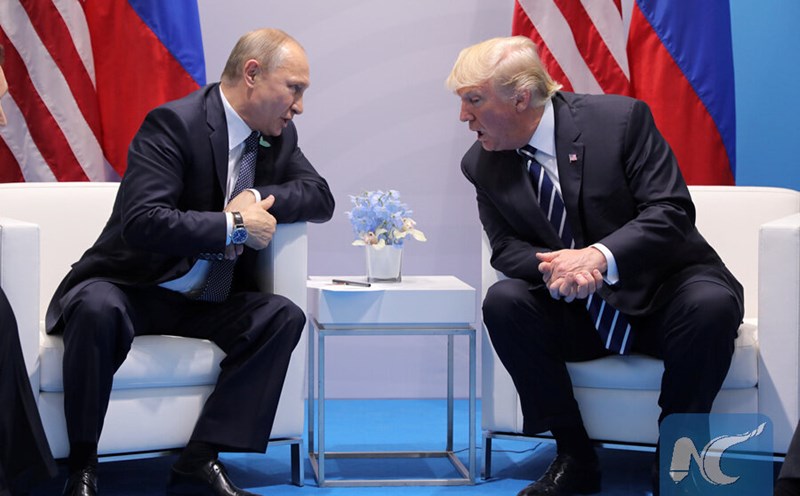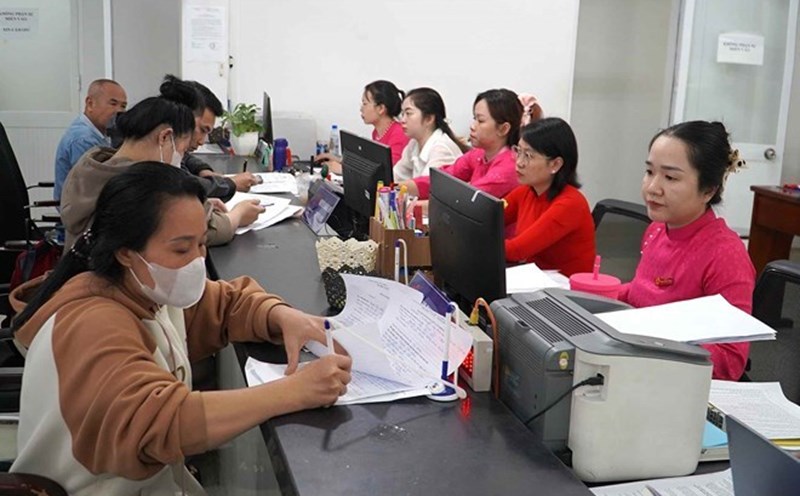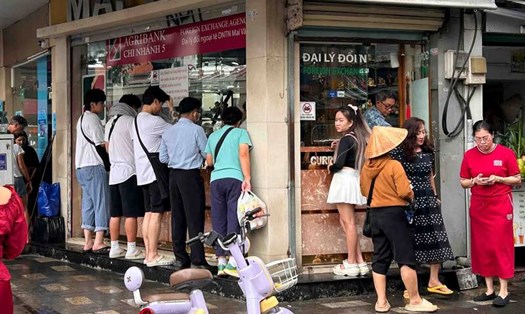In an interview with Lao Dong Newspaper, he assessed that the intervention measures of the SBV have been effective, but recommended that priority should be changed in monetary policy management at this stage.
Dr. Pham Duc Anh, how do you evaluate the developments of the USD/VND exchange rate in recent weeks, especially the large gap between the formal market and the free market?
- In my opinion, recently, the USD/VND exchange rate has increased quite rapidly, reflecting certain pressure on the domestic currency. The exchange rate listed at commercial banks and in the interbank market has continuously set new peaks. This hot development mainly comes from the context of the international USD continuing to strengthen as the US Federal Reserve (Fed) maintains high interest rates for longer than expected, causing demand for USD holdings to increase in many emerging economies, including Vietnam. However, overall, the level of fluctuations in the Vietnam exchange rate is still under control, with no signs of a major macro imbalance or a widespread psychology of "hoarding" foreign currencies.
What is the root cause of this exchange rate wave? Where has the pressure on the domestic currency come from since the beginning of the year, sir?
- In my opinion, the core reason lies in external factors, specifically the sudden and prolonged strength of the USD in the international market when the US economy grew well, while inflation has not decreased quickly enough, causing the US Federal Reserve (FED) to maintain a high interest rate policy for longer than expected. This increases US Treasury yields and makes the USD more attractive to other currencies, including the VND. At the same time, geopolitical instability, concerns about global inflation and safe-haven demand have pushed the DXY index up again, creating downward pressure on almost all other currencies, especially currencies of emerging markets such as Vietnam.
To support economic growth, the SBV has kept interest rates low. The low interest rate difference (or negative) between VND and USD has reduced the attractiveness of holding VND, promoting the flow of money to hold or pay in USD. The State Treasury's obligation to repay USD due in the year has also created a large demand for foreign currencies at some times, directly putting pressure on the USD supply in the system. Along with that, the large gap between domestic and international gold prices has stimulated the need to accumulate USD, pushing foreign currency demand up, increasing pressure on the official exchange rate.
So, do you evaluate the effectiveness of the State Bank's intervention measures in the past?
- The SBV has simultaneously used many intervention tools, thereby controlling the rate of fluctuations and stabilizing the market. The simultaneous sell-off of foreign currency for a term helps increase USD supply, meet real demand, cool down speculation and support VND liquidity. Along with that, continuous adjustments to central exchange rates help closely reflect international developments, reduce tensions between banks and the market, stabilize expectations, and avoid exchange rate shocks.
It can be seen that, compared to many countries in the region, the VND's depreciation rate is still relatively lower, showing the effectiveness of flexible management policies. The SBV's maintaining a reasonable difference between VND and USD interest rates, as well as controlling the liquidity of the banking system well, has helped limit short-term speculative capital flows and stabilize market sentiment.
Vietnam seems to be facing a "difficult calculation" between three goals: (1) keeping low interest rates to support growth, (2) stabilizing exchange rates, and (3) controlling inflation. In your opinion, which goals should the SBV prioritize in the current context?
- First, regarding the priority target of the SBV, the SBV should prioritize stabilizing the exchange rate in the current context. Keeping the exchange rate stable not only helps control import inflation but also strengthens the confidence of investors and people in the Vietnamese Dong. It is necessary to move towards flexible balance, that is, strict exchange rate control within a reasonable range, while using fiscal policy (tax reduction, fee extension, capital cost support) to support growth, instead of relying entirely on monetary policy.
Second, on coordination in managing the free foreign exchange market: In my opinion, coordination between the State Bank, the Ministry of Public Security and the Ministry of Industry and Trade in controlling the free foreign exchange market is very necessary to prevent speculation and price manipulation. When the three agencies coordinate closely, it will create comprehensive control from policy - supervision - implementation, both stabilizing the foreign exchange market and ensuring legal capital flow, contributing to maintaining confidence in the Vietnamese Dong and stabilizing the macro economy.
However, this measure is mainly administrative control, aiming to temporarily extinguish fluctuations caused by speculation and crowd psychology. Along with that, the "black market" market still exists, if the flexibility, transparency and access of the formal market are not improved, the need to switch to informal channels will continue.
Thank you, Doctor!











